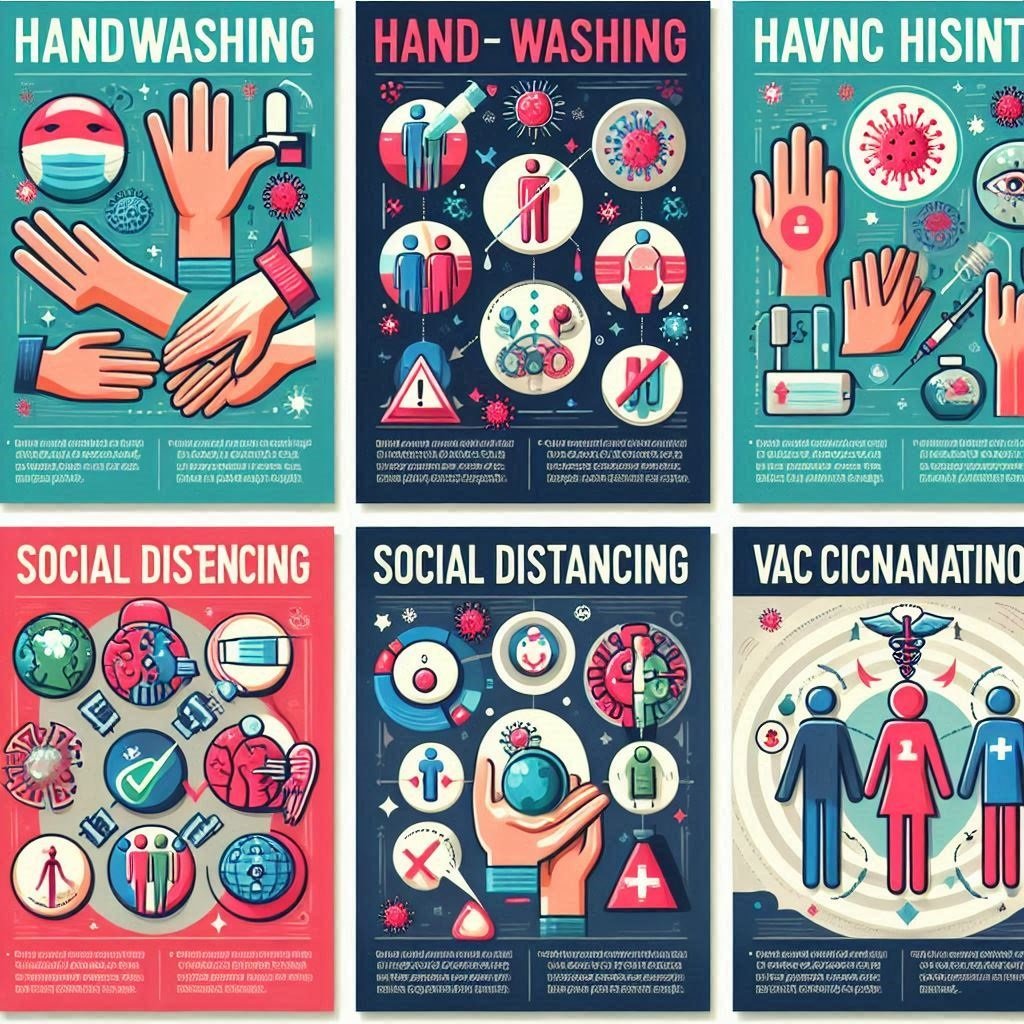Public health is all about protecting and improving the health of people and their communities. This involves preventing diseases, promoting healthy lifestyles, and ensuring a clean environment. Understanding public health initiatives can empower you to take part in safeguarding your community. This guide will provide a detailed look into public health, preventative measures, and resources to help your community thrive.
Understanding Public Health
What is Public Health?
Public health is the science of protecting and improving the health of people through education, policy-making, and research for disease and injury prevention. It focuses on the health of entire populations rather than individuals. This can range from local neighborhoods to entire countries.
Importance of Public Health
Public health initiatives help prevent the spread of diseases and improve the quality of life. They focus on prevention, which is often more effective and cheaper than treatment. By promoting healthy behaviors and environments, public health efforts can reduce healthcare costs and increase life expectancy.
Key Areas of Public Health
Public health encompasses several key areas:
- Epidemiology: The study of how diseases spread and can be controlled.
- Biostatistics: Applying statistics to biological fields, crucial for analyzing public health data.
- Environmental Health: Ensuring safe air, water, and food.
- Health Services Administration: Managing public health organizations.
- Behavioral Science/Health Education: Encouraging healthy lifestyles through education and behavior change.
Preventative Measures in Public Health
Vaccination Programs
Vaccinations are one of the most effective ways to prevent diseases. They protect not only the individual but also the community by reducing the spread of infectious diseases.
- Childhood Vaccines: Protect children from serious diseases like measles, mumps, and whooping cough.
- Adult Vaccines: Immunizations for flu, shingles, and pneumonia are crucial for adults, especially the elderly.
Health Screenings
Regular health screenings can detect diseases early when they are easier to treat. Screenings for blood pressure, cholesterol, diabetes, and certain cancers can save lives by catching issues before they become serious.
- Cancer Screenings: Mammograms, Pap smears, and colonoscopies help detect cancer early.
- Chronic Disease Screenings: Regular checks for diabetes, hypertension, and cholesterol levels can prevent severe complications.
Education and Awareness Campaigns
Educating the public about health risks and healthy practices is vital. Awareness campaigns on smoking cessation, healthy eating, and exercise can significantly impact public health.
- Anti-Smoking Campaigns: Highlight the dangers of smoking and provide resources to help people quit.
- Nutrition and Exercise Programs: Promote healthy diets and physical activity to combat obesity and related diseases.
Hygiene and Sanitation
Good hygiene and sanitation practices are fundamental in preventing the spread of diseases.
- Handwashing: Regular handwashing with soap reduces the transmission of pathogens.
- Sanitation: Access to clean water and proper waste disposal is crucial for community health.
Community-Based Public Health Initiatives
Local Health Departments
Local health departments play a key role in community health. They provide immunizations, health education, and conduct health inspections to ensure a safe environment.
- Vaccination Clinics: Offer immunizations to prevent outbreaks of infectious diseases.
- Health Inspections: Ensure that restaurants, schools, and public facilities meet health standards.
Community Health Workers
Community health workers (CHWs) are trusted members of the community who provide health education, support, and services. They bridge the gap between the community and the healthcare system.
- Health Education: Teach community members about disease prevention and healthy living.
- Support Services: Assist with navigating the healthcare system and accessing necessary services.
School Health Programs
Schools are an important setting for public health initiatives. School health programs promote healthy behaviors among children and adolescents.
- Health Education: Classes on nutrition, physical activity, and mental health.
- Health Services: On-site nurses and counselors provide health screenings and support.
Workplace Health Programs
Workplaces can also support public health through wellness programs that promote healthy lifestyles among employees.
- Wellness Programs: Encourage physical activity, healthy eating, and stress management.
- Health Screenings: Offer regular screenings for blood pressure, cholesterol, and other health indicators.
National and Global Public Health Initiatives
Government Agencies
Government agencies play a crucial role in public health at the national level. They develop policies, conduct research, and provide funding for public health programs.
- Centers for Disease Control and Prevention (CDC): The CDC leads national public health efforts in the United States. It focuses on disease prevention, health promotion, and emergency preparedness.
- World Health Organization (WHO): The WHO coordinates international public health efforts, addressing global health issues and setting health standards.
Non-Governmental Organizations (NGOs)
NGOs contribute significantly to public health by providing services, conducting research, and advocating for health policies.
- Doctors Without Borders: Provides medical care in crisis situations worldwide.
- The American Red Cross: Offers disaster relief and health education programs.
Public Health Research
Research is fundamental to advancing public health. It helps to understand health issues and develop effective interventions.
- Clinical Trials: Test new treatments and interventions for safety and effectiveness.
- Epidemiological Studies: Investigate the causes and patterns of diseases.
Public Health Resources
Online Resources
There are many online resources available for those looking to learn more about public health.
- CDC Website: Offers a wealth of information on various health topics and current public health issues.
- MedlinePlus: A trusted resource for health information, providing details on diseases, conditions, and wellness.
Community Resources
Local resources can provide support and information to help maintain and improve community health.
- Health Clinics: Offer medical services, screenings, and vaccinations.
- Community Centers: Provide health education programs and fitness classes.
Educational Programs
Education is a key component of public health. Various programs and courses are available for those interested in learning more.
- Public Health Degrees: Universities offer degrees in public health, providing the knowledge and skills needed to work in the field.
- Online Courses: Many institutions offer online courses in public health topics, making it easy to learn at your own pace.
Taking Action: How You Can Help
Get Involved
There are many ways to get involved in public health initiatives in your community.
- Volunteer: Offer your time and skills to local health organizations and events.
- Advocate: Speak up for public health policies and programs that benefit your community.
Promote Healthy Behaviors
Encourage healthy behaviors in your community by setting a positive example.
- Healthy Eating: Share nutritious recipes and encourage balanced diets.
- Physical Activity: Organize group activities like walking clubs or fitness classes.
Support Public Health Programs
Support public health programs through donations, fundraising, and spreading awareness.
- Donate: Contribute to organizations that promote public health.
- Fundraise: Organize events to raise funds for health initiatives.
- Spread Awareness: Share information about public health programs and resources on social media.
Stay Informed
Keep up to date with public health news and developments. Staying informed helps you make better decisions for your health and the health of your community.
- Follow Health Organizations: Follow organizations like the CDC and WHO on social media.
- Read Health News: Stay informed by reading reliable health news sources.

Conclusion
Public health initiatives are essential for the well-being of our communities. By understanding and participating in these initiatives, we can all contribute to a healthier, safer world. From vaccinations and health screenings to education and community programs, every effort counts. Empower yourself with knowledge and take action to safeguard your community. Together, we can make a difference.
Additional Resources
Books on Public Health
- “Public Health 101: Healthy People – Healthy Populations” by Richard Riegelman: A comprehensive introduction to public health concepts.
- “The Immortal Life of Henrietta Lacks” by Rebecca Skloot: Explores the ethical issues in public health research.
Online Courses
- Coursera: Offers various public health courses from top universities.
- edX: Provides courses on public health topics from leading institutions.
Health Apps
- MyFitnessPal: Helps track diet and exercise for a healthier lifestyle.
- Headspace: Offers guided meditation and mindfulness exercises.
Websites for Further Reading
- CDC (cdc.gov): Information on public health and safety.
- WHO (who.int): Global health information and updates.
Taking the initiative to learn about public health and getting involved in your community’s health efforts can have a profound impact. By working together, we can build healthier, more resilient communities. Let’s empower ourselves with knowledge and take steps towards a brighter, healthier future.
